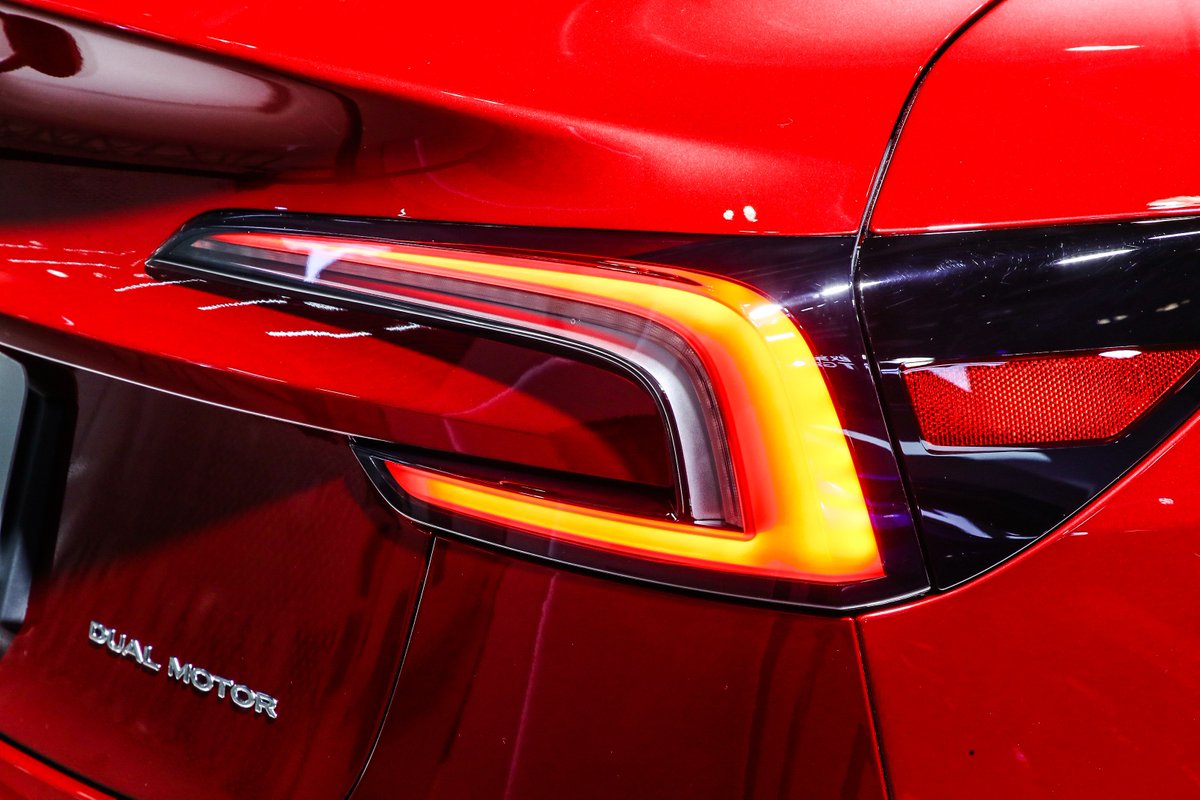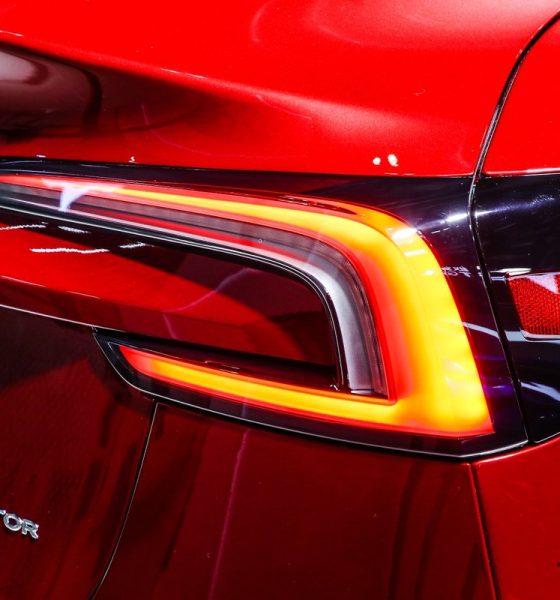

Investor's Corner
Tesla shareholder’s legal team adjusts demand to $1.44 billion in fees for Musk pay case
The legal team of Tesla shareholder Richard Tornetta, who filed a legal complaint against Elon Musk’s 2018 CEO Performance Award, has adjusted their plaintiff fee request to the Delaware Court. Tornetta’s legal team noted that they could adjust their proposed fee to just $73,948 per hour, which would amount to a cash award of roughly $1.44 billion.
The Tornetta vs. Musk case became a notable issue for the electric vehicle maker back in January when Judge Kathaleen McCormick of the Delaware Court of Chancery rescinded Musk’s 2018 CEO Performance Award. For their work in the case, Tornetta’s legal team argued that they should be granted 29.4 million TSLA shares. Such an amount would be worth over $5 billion, or more than $200,000 per hour.
Tesla has argued against Tornetta’s legal team’s arguments. As noted in a Reuters report, the electric vehicle maker argued that the legal team of the Tesla shareholder — who held nine shares when he filed his complaint against Musk’s 2018 pay package — should be paid just about $13.6 million for their work. Longtime Tesla retail shareholder Amy Steffens has also secured legal counsel to challenge the $200,000 per hour fee request of Tornetta’s attorneys.
In their recent filing, Tornetta’s legal team proposed an alternative way of looking at the fees for their work in the case. While the legal team rejected Tesla’s $13.6 million legal fee argument, and while the attorneys still argued that the court should strongly consider granting them over 29 million TSLA shares as payment, they noted that the Court could go for a cash-based alternative structure instead. Such a system would lower their hourly rate to $73,948, and would result in a payment of around $1.44 billion.
$73,948 per hour is unacceptable and highly inappropriate to request.
The ABA Rules for Professional Conduct, specifically Rule 1.5(a) states: “A lawyer shall not make an agreement for, charge, or collect an unreasonable fee or an unreasonable amount for expenses…”
In short,… https://t.co/kItq68oBAK— Jade (@ImUsuallyRighTT) June 22, 2024
Following are sections of the filing from Tornetta’s lawyers.
“While Plaintiff’s Counsel sincerely believe the award sought is appropriate, earned, and indeed conservative under Delaware law—the Action did, after all, rescind an ‘unfathomable’ $55B compensation package, the largest in history by multiples—Plaintiff’s Counsel acknowledge the requested award, if granted, would be record-setting and the subject of significant commentary. Were the Court concerned by the requested award’s size and desirous of a different approach, there are other alternatives available that address the expressed concerns about “windfalls.”
“Specifically, $35,000/hour cannot be a ‘windfall’ because that hourly rate was awarded by this Court and affirmed by the Supreme Court over a decade ago in Southern Peru. Adjusted to today’s dollars, a $35,000 hourly rate would be over $55,600/hour. It follows, a fortiori, that for a substantial verdict on the order of Southern Peru, an award of at least $55,600/hour is not a ‘windfall.’
“Indeed, even Tesla argues that this Action created compensable value equal to its calculation of the Grant’s $2.3B GDFV. But even using this low-end value estimate, the benefit Plaintiff achieved here was significantly higher than the $1.347B (pre-interest) Southern Peru benefit. Thus, a low-end cash award of roughly $1.0842B could be fashioned based solely on the affirmed, inflation-adjusted Southern Peru numbers.
“But any such award would be unfairly low for two reasons. First, as noted in Plaintiff’s Opening Brief, this Court in Southern Peru—after admonishing plaintiff’s counsel to seek a conservative fee given ‘the reality [that] their own delays affected the remedy awarded’—further reduced that request by one-third as a penalty for counsel taking so long to prosecute the case that rescission was impossible. Second, the ~$51B benefit achieved here is approximately 38x higher than the benefit achieved in Southern Peru.
“Adjusting for the one-third penalty assessed in Southern Peru—which was applied to an already conservative 22.5% request by that plaintiff—brings the inflation-adjusted lodestar to $73,948/hour, which yields a fee of approximately $1.44B. Adjusting further to reflect the much higher result here is a matter of the Court’s discretion Plaintiff’s Counsel would submit that exercising the Court’s discretion to award a cash fee of roughly twice the inflation-adjusted Southern Peru hourly rate after reversing for the discount appropriately reflects the substantially greater benefit achieved here,” Tornetta’s lawyers wrote.
The fling from Tornetta’s lawyers can be viewed below (via Plainsite).
gov.uscourts.delch.2018-0408-KSJM.387.0 by Simon Alvarez on Scribd
Don’t hesitate to contact us with news tips. Just send a message to simon@teslarati.com to give us a heads up.

Elon Musk
Tesla to a $100T market cap? Elon Musk’s response may shock you

There are a lot of Tesla bulls out there who have astronomical expectations for the company, especially as its arm of reach has gone well past automotive and energy and entered artificial intelligence and robotics.
However, some of the most bullish Tesla investors believe the company could become worth $100 trillion, and CEO Elon Musk does not believe that number is completely out of the question, even if it sounds almost ridiculous.
To put that number into perspective, the top ten most valuable companies in the world — NVIDIA, Apple, Alphabet, Microsoft, Amazon, TSMC, Meta, Saudi Aramco, Broadcom, and Tesla — are worth roughly $26 trillion.
Will Tesla join the fold? Predicting a triple merger with SpaceX and xAI
Cathie Wood of ARK Invest believes the number is reasonable considering Tesla’s long-reaching industry ambitions:
“…in the world of AI, what do you have to have to win? You have to have proprietary data, and think about all the proprietary data he has, different kinds of proprietary data. Tesla, the language of the road; Neuralink, multiomics data; nobody else has that data. X, nobody else has that data either. I could see $100 trillion. I think it’s going to happen because of convergence. I think Tesla is the leading candidate [for $100 trillion] for the reason I just said.”
Musk said late last year that all of his companies seem to be “heading toward convergence,” and it’s started to come to fruition. Tesla invested in xAI, as revealed in its Q4 Earnings Shareholder Deck, and SpaceX recently acquired xAI, marking the first step in the potential for a massive umbrella of companies under Musk’s watch.
SpaceX officially acquires xAI, merging rockets with AI expertise
Now that it is happening, it seems Musk is even more enthusiastic about a massive valuation that would swell to nearly four-times the value of the top ten most valuable companies in the world currently, as he said on X, the idea of a $100 trillion valuation is “not impossible.”
It’s not impossible
— Elon Musk (@elonmusk) February 6, 2026
Tesla is not just a car company. With its many projects, including the launch of Robotaxi, the progress of the Optimus robot, and its AI ambitions, it has the potential to continue gaining value at an accelerating rate.
Musk’s comments show his confidence in Tesla’s numerous projects, especially as some begin to mature and some head toward their initial stages.
Elon Musk
Tesla director pay lawsuit sees lawyer fees slashed by $100 million
The ruling leaves the case’s underlying settlement intact while significantly reducing what the plaintiffs’ attorneys will receive.

The Delaware Supreme Court has cut more than $100 million from a legal fee award tied to a shareholder lawsuit challenging compensation paid to Tesla directors between 2017 and 2020.
The ruling leaves the case’s underlying settlement intact while significantly reducing what the plaintiffs’ attorneys will receive.
Delaware Supreme Court trims legal fees
As noted in a Bloomberg Law report, the case targeted pay granted to Tesla directors, including CEO Elon Musk, Oracle founder Larry Ellison, Kimbal Musk, and Rupert Murdoch. The Delaware Chancery Court had awarded $176 million to the plaintiffs. Tesla’s board must also return stock options and forego years worth of pay.
As per Chief Justice Collins J. Seitz Jr. in an opinion for the Delaware Supreme Court’s full five-member panel, however, the decision of the Delaware Chancery Court to award $176 million to a pension fund’s law firm “erred by including in its financial benefit analysis the intrinsic value” of options being returned by Tesla’s board.
The justices then reduced the fee award from $176 million to $70.9 million. “As we measure it, $71 million reflects a reasonable fee for counsel’s efforts and does not result in a windfall,” Chief Justice Seitz wrote.
Other settlement terms still intact
The Supreme Court upheld the settlement itself, which requires Tesla’s board to return stock and options valued at up to $735 million and to forgo three years of additional compensation worth about $184 million.
Tesla argued during oral arguments that a fee award closer to $70 million would be appropriate. Interestingly enough, back in October, Justice Karen L. Valihura noted that the $176 award was $60 million more than the Delaware judiciary’s budget from the previous year. This was quite interesting as the case was “settled midstream.”
The lawsuit was brought by a pension fund on behalf of Tesla shareholders and focused exclusively on director pay during the 2017–2020 period. The case is separate from other high-profile compensation disputes involving Elon Musk.
Investor's Corner
Tesla (TSLA) Q4 and FY 2025 earnings call: The most important points
Executives, including CEO Elon Musk, discussed how the company is positioning itself for growth across vehicles, energy, AI, and robotics despite near-term pressures from tariffs, pricing, and macro conditions.

Tesla’s (NASDAQ:TSLA) Q4 and FY 2025 earnings call highlighted improving margins, record energy performance, expanding autonomy efforts, and a sharp acceleration in AI and robotics investments.
Executives, including CEO Elon Musk, discussed how the company is positioning itself for growth across vehicles, energy, AI, and robotics despite near-term pressures from tariffs, pricing, and macro conditions.
Key takeaways
Tesla reported sequential improvement in automotive gross margins excluding regulatory credits, rising from 15.4% to 17.9%, supported by favorable regional mix effects despite a 16% decline in deliveries. Total gross margin exceeded 20.1%, the highest level in more than two years, even with lower fixed-cost absorption and tariff impacts.
The energy business delivered standout results, with revenue reaching nearly $12.8 billion, up 26.6% year over year. Energy gross profit hit a new quarterly record, driven by strong global demand and high deployments of MegaPack and Powerwall across all regions, as noted in a report from The Motley Fool.
Tesla also stated that paid Full Self-Driving customers have climbed to nearly 1.1 million worldwide, with about 70% having purchased FSD outright. The company has now fully transitioned FSD to a subscription-based sales model, which should create a short-term margin headwind for automotive results.
Free cash flow totaled $1.4 billion for the quarter. Operating expenses rose by $500 million sequentially as well.
Production shifts, robotics, and AI investment
Musk further confirmed that Model S and Model X production is expected to wind down next quarter, and plans are underway to convert Fremont’s S/X line into an Optimus robot factory with a capacity of one million units.
Tesla’s Robotaxi fleet has surpassed 500 vehicles, operating across the Bay Area and Austin, with Musk noting a rapid monthly expansion pace. He also reiterated that CyberCab production is expected to begin in April, following a slow initial S-curve ramp before scaling beyond other vehicle programs.
Looking ahead, Tesla expects its capital expenditures to exceed $20 billion next year, thanks to the company’s operations across its six factories, the expansion of its fleet expansion, and the ramp of its AI compute. Additional investments in AI chips, compute infrastructure, and future in-house semiconductor manufacturing were discussed but are not included in the company’s current CapEx guidance.
More importantly, Tesla ended the year with a larger backlog than in recent years. This is supported by record deliveries in smaller international markets and stronger demand across APAC and EMEA. Energy backlog remains strong globally as well, though Tesla cautioned that margin pressure could emerge from competition, policy uncertainty, and tariffs.








